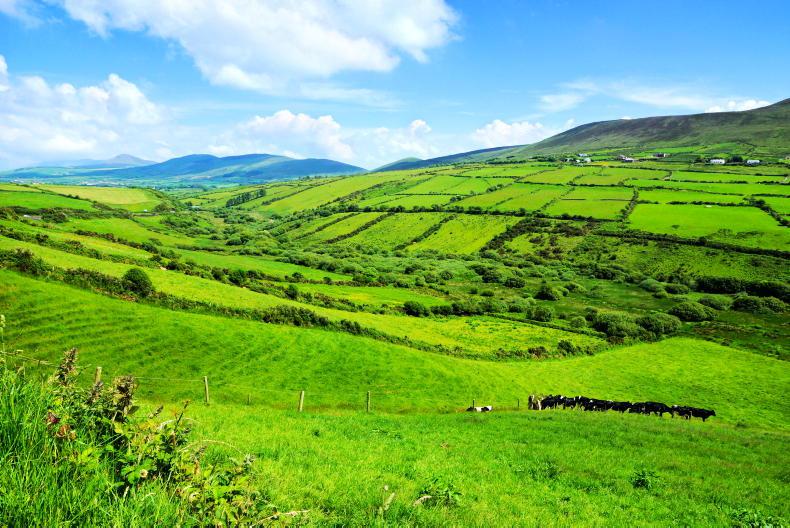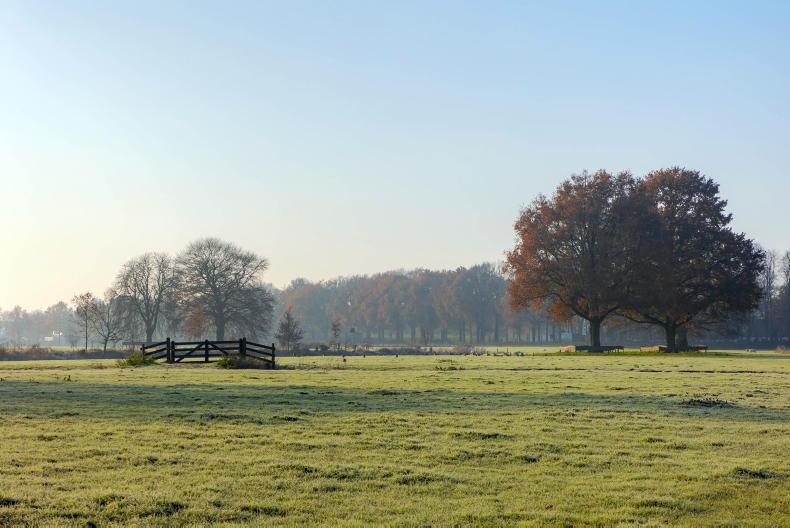At AIB we are seeing strong demand for land purchase loans this year and while there is no doubt that this activity is being driven by policy in some instances, we are also seeing lots of interest in land from part time farmers and also businesses outside of Agri.
With the relatively small area of agricultural land that comes up for sale annually, around 0.5% of the total area (c. 60,000 acres in 2021 and 2022 according to the CSO), there is always pent-up demand for agricultural land.
Purchasing
Purchasing land is a significant investment for farmers, whether it is expanding an existing operation, securing currently leased land, or simply improving access to your farm by acquiring an adjacent field. Regardless of the reason, such a decision requires careful consideration and planning, especially when it comes to financing the transaction.
The adage "location, location, location" holds true in farming as much as in real estate. In many instances it is a once in a lifetime opportunity to purchase land that is joining your farm or across the boundary ditch.
The distance from your main block of land to the new parcel can affect the farming practices you can carry out as well as the efficiency and management of your operation.
Proximity to your existing land can allow for the easy movement and grazing of animals, reduce travel time, ease the movement of machinery, and allow better supervision of animals and crops.
The return any farmer makes from farmland is a factor of the quality of the land, the production system and also the management ability of the farmer.
It is important to understand the expected return from your investment in land before purchasing. As such the quality of the land is paramount.
Examine the soil type and its fertility, as this will influence crop yields and the type of farming you can conduct.
Improving the quality of land such as drainage works, soil fertility and reseeding can be expensive and need to be considered in budgets in the planning phase.
Some land may have existing infrastructure, including sheds, electricity, fencing and water. These structures can significantly reduce further investment costs. However, it is important to consider their condition and the potential costs of repairs or upgrades.
The presence of electricity connections can further enhance the land’s utility, particularly for automated systems and equipment.

Other Costs
Do not overlook the other costs such as stamp duty, legal costs and valuation fees. These expenses can add up and will impact the overall cost involved. Proper planning for these costs will help you avoid financial surprises post-purchase.
Establishing a clear budget at the outset for all these items is critical. Factor in the purchase price, financing costs, stamp duty, legal and valuation fees and additional expenses such as improvements, repairs, and operational costs.
AIB typically offers a 70% Loan to Value ratio for land purchase. For example, for a farmer purchasing land costing €200,000, the bank can advance up to €140,000 for this piece of land.
However, should the purchaser seek the full amount of €200,000, AIB can advance the full amount but would require additional land as security to the minimum value of €86,000.
Outside of the financial outlay it is important that there is adequate independent access or access via a registered right of way and to verify the land’s title and deed to ensure there are no legal encumbrances or disputes.
Clear titles are essential for securing financing and establishing your ownership rights. If you are planning to buy land at auction, make sure your solicitor has reviewed the legal pack and you have confirmation of support from your bank, if their support is required.

Purchasing land is a significant investment that requires careful financial planning. The investment should fundamentally serve to enhance and strengthen your existing operation.
By considering factors such as location, land quality, infrastructure, and financing options, you can make informed decisions that support your farming business's growth and sustainability. It is important to be realistic in terms of what the investment will deliver – base projections on conservative market prices, levels of output and operating costs.
If you are borrowing money to support the investment, it is important to structure your bank finance appropriately.
AIB offers terms of up to 20 years for land purchase, with flexible repayment options to match the cash flow cycle of the farm.
Lending criteria, terms and conditions apply. Credit facilities are subject to repayment capacity and financial status and are not available to persons under 18 years of age. Security may be required. Allied Irish Banks, p.l.c. is regulated by the Central Bank of Ireland.







 This is a subscriber-only article
This is a subscriber-only article





